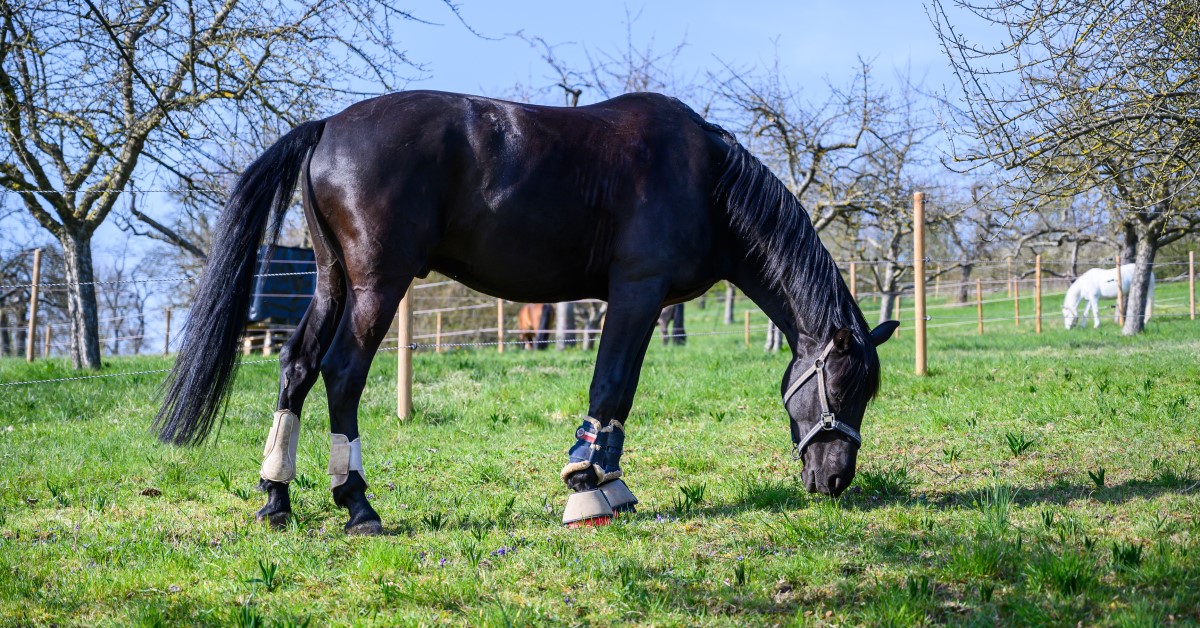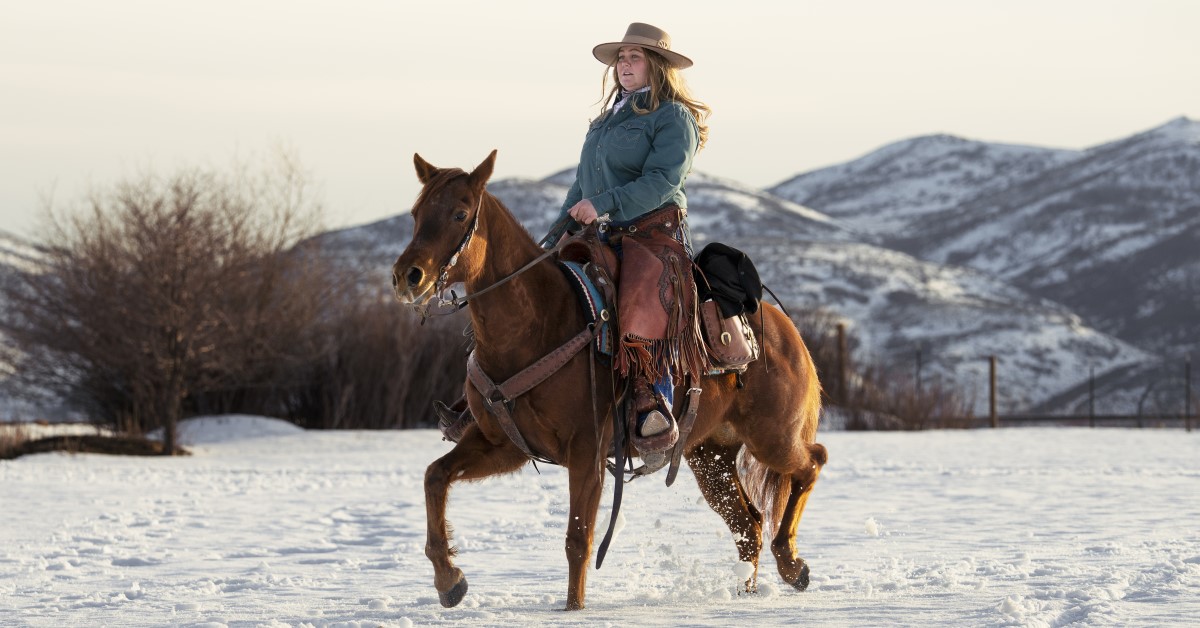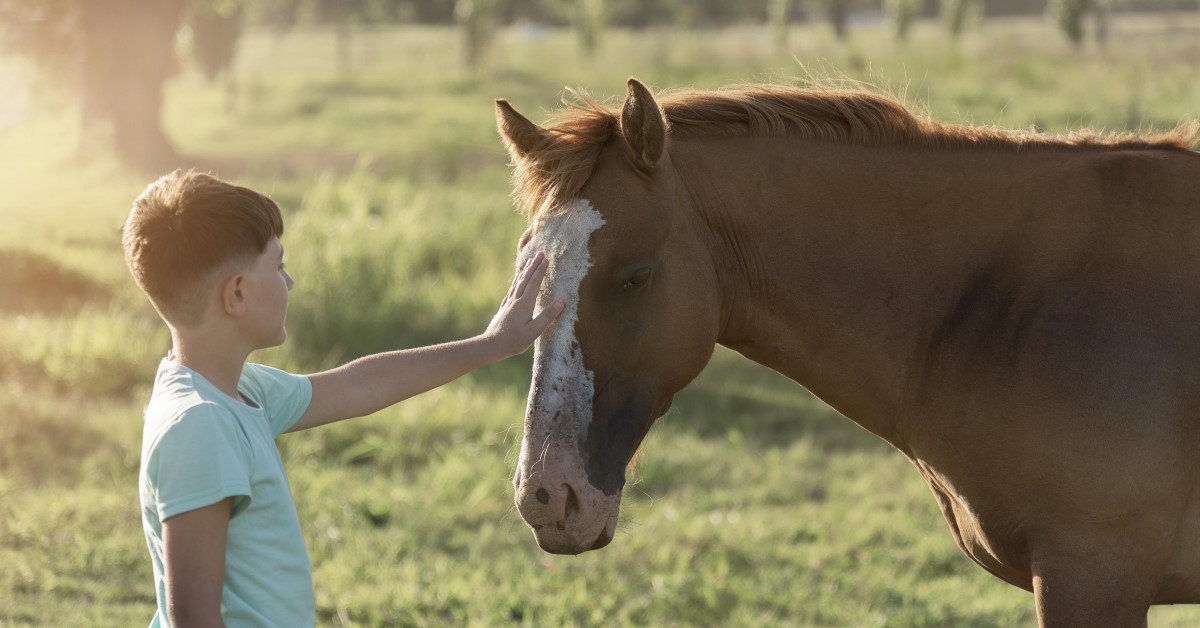Do Horses Need Their Teeth Brushed? The Importance of Dental Care for Horses
Proper dental care can ward off a wide range of common health problems in horses.

Horses require strong, healthy teeth to effectively chew food and obtain adequate nutrition. Poor dental care can result in a myriad of problems, such as oral discomfort, behavioral issues, weight loss, and impaction colic from the inability to properly chew. Horses with oral health issues can also develop painful ulcers in the mouth, as well as infections that put the animal’s health at risk.
According to New Ulm Regional Veterinary Center, foals should undergo a dental exam shortly after birth and throughout the first year to diagnose and resolve potential congenital health problems. Between the ages of two and five, horses may require frequent dental exams as sharp enamel points can develop. Mature horses require a dental exam at least once a year to diagnose dental problems and maintain proper dental alignment.
Learn more about the importance of dental care for horses and how to properly care for your horse’s oral health.
Dental Anatomy of Horses
The teeth of a horse are unique from many other animals, including cats and dogs. Instead of having enamel on the outside of the teeth to protect against environmental factors, the teeth are covered in a softer cementum. In addition, the teeth of a horse continue to grow throughout the animal’s life, stopping at a certain point in old age.
Horses use their teeth to continually grind down food. Over time, the teeth can develop sharp points on the outer edges of the upper teeth and the inside edges of the lower teeth. These sharp points can potentially cause injury to the soft tissues in the mouth and make it difficult for horses to chew comfortably.
Horses have the following teeth:
- Incisors: A horse has a total of six upper incisors and six lower incisors. These deep-rooted teeth are used to grab and tear food.
- Canines: Canine teeth in horses erupt around four to five years of age. They can be found on both the upper and lower sides but usually only in male horses. They were originally used as a weapon but serve no useful purpose in modern horses.
- Wolf Teeth: The wolf teeth are small and can be found in front of the upper cheek teeth. Wolf teeth generally erupt between six and 18 months and can vary in position and size. Like the canines, they serve no purpose in the modern horse.
- Cheek Teeth: Horses spend much of their day grazing on grasses. The cheek teeth are responsible for grinding down these grasses to prepare them for digestion.
Dental Care for Horses
Horses with dental problems do not always show outward signs. In many cases, a horse will have no clinical signs until the condition has progressed to a more serious level. Some indications that a horse may have a dental problem include bad breath, difficulty chewing, excessive salivation, dropping feed while eating, cuts or ulcerations on the tongue or cheek, making unusual movements with the head or mouth, and “quidding.”
Before you can properly care for your horse’s oral health, you must first become familiar with the basics of equine dental care. When looking at your horse, the face should be symmetrical. This means that the ears, eyes, and nostrils should be level. Have your horse examined by a vet regularly to diagnose potential dental problems early on and before they can cause a serious infection or other problem.
There are several ways that owners can promote good dental health in horses, such as by feeding their horses at ground level. Feeding at ground level also decreases the risk of respiratory issues as the horse is not directly inhaling hay and dust particles. Offer the horse free-choice coarse grass hays or multiple feedings. This can help wear down the horse’s molars through grinding. If possible, provide your horse with shrubs, trees, and natural logs that force the animal to use his incisors for tearing.
Brushing a Horse’s Teeth
Like humans, horses require regular dental exams and cleanings to prevent a buildup of tartar and ward off gum disease. Stubborn tartar can be removed from your horse’s teeth between dental appointments by brushing your horse’s teeth. As horses are herbivores, the foods they eat create an alkaline environment in the mouth. There is also little space between the teeth for decay to develop. While a horse’s teeth require routine exams, brushing your horse’s teeth is not always needed.
Instead of using a traditional toothbrush, a horse’s teeth are usually cleaned by simply rinsing the mouth. A large syringe can be useful for reaching the teeth in the far back. Your vet can help with the teeth cleaning process to ensure that all tartar is properly removed. A vet can also file down any sharp edges on the teeth, a process known as teeth floating. While teeth floating may seem like a painful procedure for horses, it is actually a pain-free process as there are no nerves in the teeth.
Caring for Your Horse’s Teeth
While horses do not need their teeth brushed twice a day like humans, they should be examined and cleaned at least once a year by a reputable veterinarian. Your vet will help remove tartar, check for signs of decay, perform extractions if needed, and identify possible oral health conditions. By following recommendations given by your equine dentist, you can help maintain your horse’s teeth and oral health for many years.
Ready to start saving money on pet wellness care?
Then take a look at Mint Wellness, the pet wellness plan that provides fast reimbursement on routine pet care. Save on vaccinations, wellness exams, preventatives, dental, and more!
Learn More


